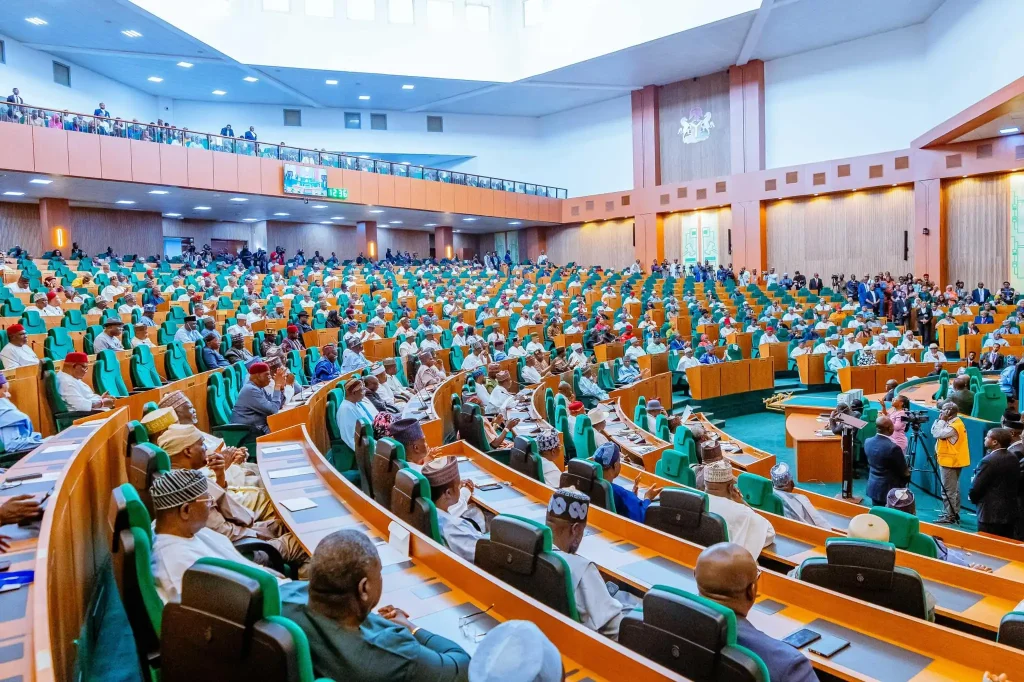
A plenary session of the House of Reps (PHOTO CREDIT: @HouseNGR)
Nigeria’s House of Representatives Public Accounts Committee (PAC) has announced the recovery of more than ₦200 billion (approximately $150 million) in lost revenue for the federal government over the past year, a milestone lawmakers say underscores the power of legislative oversight in strengthening fiscal accountability.
The disclosure was made on Monday by PAC Chairman, Bamidele Salam, at the opening of the 11th Annual Conference and General Assembly of the West Africa Association of Public Accounts Committees (WAAPAC), taking place from 8–12 September at the National Assembly Complex in Abuja. This marks the first time Nigeria is hosting the continental gathering since WAAPAC was established in 2009.
Mr. Salam attributed the recovery to “pragmatic measures” designed to improve fiscal compliance, enhance transparency, and promote efficiency in public financial management.
“This recovery is evidence of what legislative oversight can achieve when backed by reforms and proactive engagement,” he said.
The PAC chairman highlighted several milestones beyond the ₦200bn recovery:
Mr. Salam also emphasized the committee’s efforts in fostering cross-border cooperation, with exchanges involving Ghana, Kenya, Rwanda, Uganda, and Zimbabwe to entrench best practices in financial oversight.
Reinforcing the theme of the conference—“Strengthening Parliamentary Oversight of Public Debt”—House Speaker Abbas Tajudeen, represented by House Leader Julius Ihonvbere, warned that Africa’s debt profile had reached a “critical point.”
He noted that by 2022, the continent’s public debt stood at $1.8 trillion, with external debt surpassing $1 trillion in 2023, leaving many governments spending more on debt servicing than on healthcare or social services.
Mr. Tajudeen announced that Nigeria would spearhead the creation of a West African Parliamentary Debt Oversight Framework, harmonising debt reporting across the region and giving parliaments stronger tools for transparency.
Senate President Godswill Akpabio, represented by Senator Osita Izunaso, pointed to Nigeria’s 1999 Constitution, which already grants parliament significant oversight powers through sections 80, 85, and 88.
“These committees embody the principle that public money must be publicly accounted for. Without them, debt management could easily drift,” he said.
Mr. Akpabio stressed that parliamentary oversight is critical in ensuring that borrowing aligns with long-term development goals rather than short-term consumption or corruption.
Since its creation in 2009, WAAPAC has evolved into a vital platform for peer learning among Public Accounts Committees across West Africa. It provides a framework for reviewing practices, building trust among member states, and setting regional standards for fiscal transparency.
For Nigeria, hosting WAAPAC’s 11th conference is both symbolic and strategic, reinforcing its role in shaping accountability mechanisms across the region.